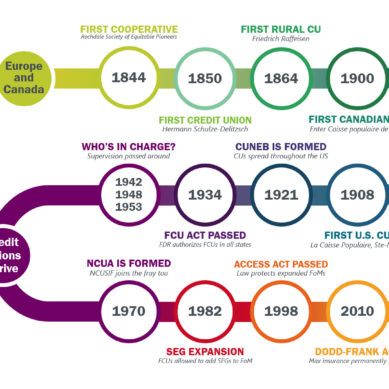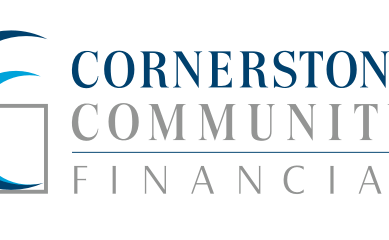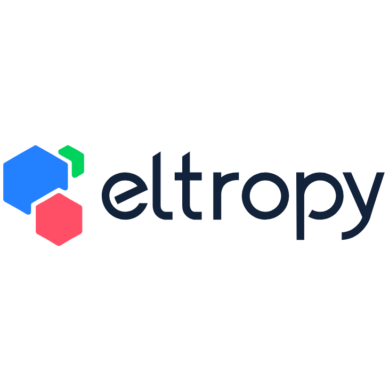Republished from Making a Data Point
There are many people telling you how to “do” data analytics today. Use these tools, use these coding/query languages, these database structures are best, start with these projects, get executive buy-in this way, etc. What these articles and webinars often fail to acknowledge are the habits and skillsets that are critical to actually finding success with any of these approaches. I’m calling them the soft skills of data analytics and I have come to believe each of these five skills are critical to be successful as a data analyst.
I don’t claim that these are the only ones necessary for success. But each are things I’ve learned the importance of as I continue my own journey of developing into a proficient interpreter of data.
1. Be Curious
Nothing knowledge-based is out of scope for a data analyst. You can be in charge of your own education. Read industry articles of all topics – marketing, finance, fraud, operations, lending, member experience, branch profitability, etc.
Search YouTube for speeches and pre-recorded webinars from analytics conferences and some of the companies already doing data analytics today. Listen for inspiration, or to simply begin picking up on some of the industry language if you’re very new to this.
Find blogs and companies producing content related to data analytics and credit unions in general, then sign up for their email lists! Yes, it can begin blowing up the inbox quickly, but do not feel pressured to read every one. Set an inbox rule and each morning get to as many as you can, then move on.
2. Slow Down
Easier said than done, I know. But allow yourself the focus of attention and research each project deserves. Don’t just allow for dead ends, EMBRACE dead ends. If you don’t pay attention to why you hit the dead end, you will not have learned from the experience.
You need to be giving yourself enough mental margin to spend time and energy on pursuing answers to all the questions you’ll generate by following the advice in this next skill…
3. Exercise
Your critical thinking muscles, that is. Do your mental pushups. Even when there isn’t a special project in mind, always find a reason to have a question when you see information. You see a spike in debit card transactions in August EVERY YEAR – why? Is that justifiable?
Always be asking – does this mean anything? Is it affected by anything? Contaminated by bad data mining practices? Bad data input practices? Bad configurations? Is it suspicious that the line is flat? Or is it a good thing the line is flat? Inconclusive? Impossible to know without more information? Too old to be relevant? Too soon to say it’s significant? What is this compared to my credit union’s historical stats? To the credit union industry’s stats? To the overall banking industry’s stats?
As a bonus – the more prepared you are with answers to questions like the ones above, the more intelligently you can defend and support your own results to the people with whom you share them.
4. Take Notes
And take them AS YOU GO. Do not wait until the end of the project to try writing out the procedures to what you just did, or recap the results and realize you forgot where you even started.
I had a situation bite me pretty hard recently (I learned my lesson on this one) – There is not much worse than being “in the zone” and everything ties together…until a diversion happens and 5 weeks later you’re back on the project and unfortunately realize you literally can’t remember what folder you saved all that stuff in. Oops.
5. Tell People Things
Ok, you’re probably laughing but I mean that you should be sharing findings and information whenever and wherever you possibly can. It’s a little bit about making sure your voice is heard by your colleagues and bosses, and a little bit about making sure you begin introducing the same people to the experience and expectation of being able to back up decisions and conversations with data & information.
You are a person who can quantify theories and ideas. As you share more of your thought process and results you are both proving your effectiveness and value, and also beginning to build your organization’s collective data IQ.
Maybe Another One?
An honorary #6 could be to also use that curious mind for seeking out and re-familiarizing yourself with math like calculating average, mean, median, percent increase, percent decrease, and other similar summarizing or comparative formulas. If this is not a competency of yours yet, it is important to cultivate an instinct here. Numbers as raw numbers are valuable, but you will definitely need to have an instinct for quickly identifying various ways to gain more value out of refining them with these simple calculations.

































































Joey Czellar#1
“unfortunately realize you literally can’t remember what folder you saved all that stuff in” – I can definitely relate to this Annalyn!
Great write-up on soft skills, I definitely agree with number 4. I tend to forget things if they don’t make it into the project tracking software I use, or at the very least in a notebook, especially when building queries!